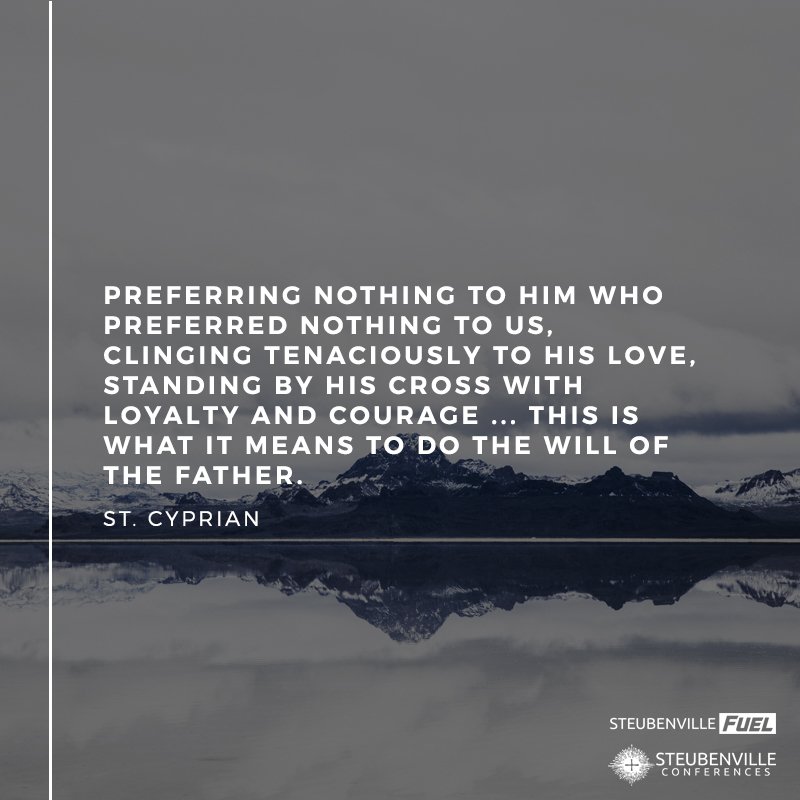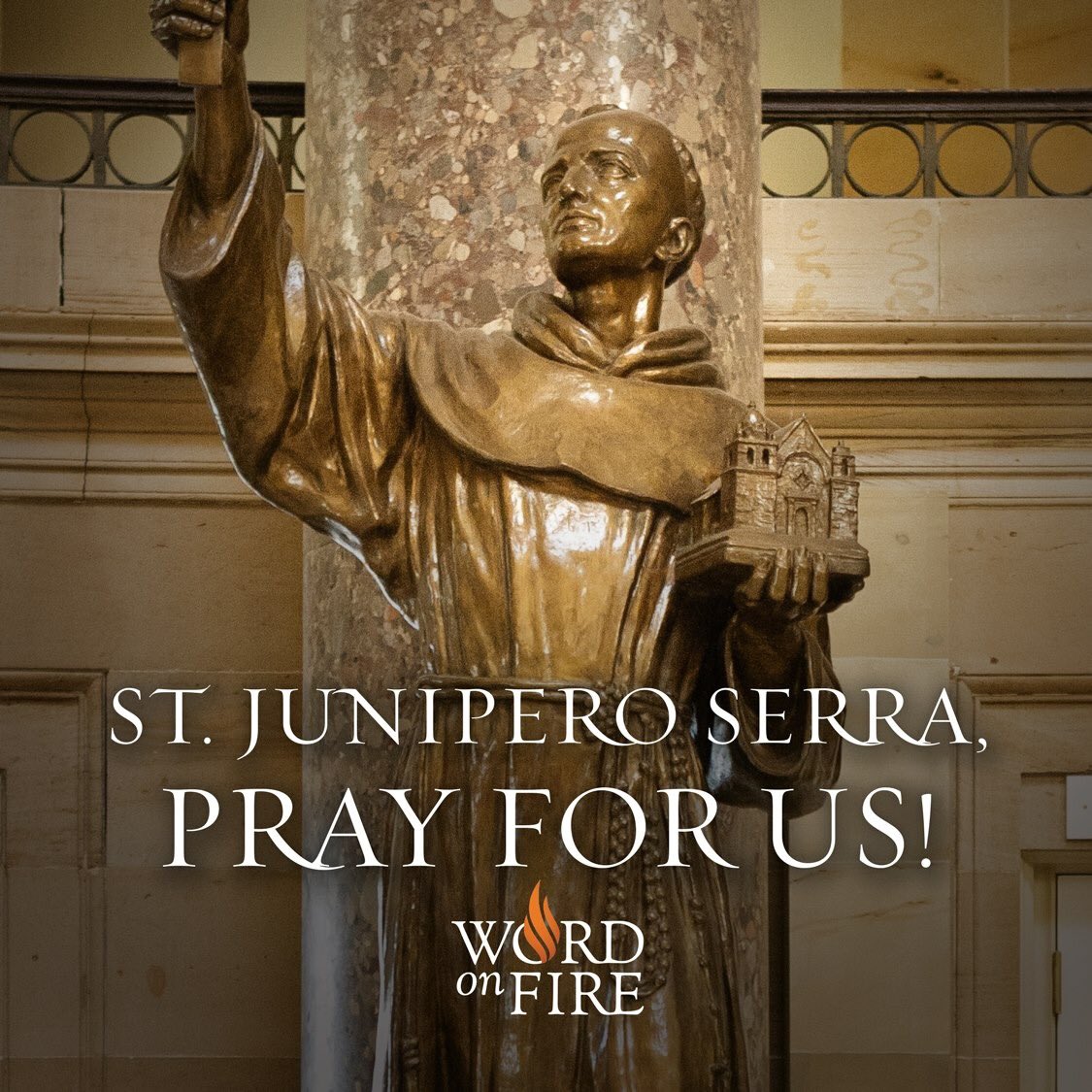The joy of faith, the joy of the Gospel is the touchstone of the faith of a person. Without joy that person is not a true believer. Let’s go home, but before that, we celebrate here with these words of Jesus: “Abraham your father rejoiced to see my day; he saw it and was glad.” And ask the Lord for the grace to be rejoicing in hope, for the grace to see the day of Jesus when we will be with Him and for the grace of joy.”
2. Some of Fr. Jean-Nicolas Grou, S.K. from Magnificat today:
The way of love is a way of faith, consequently obscure and dark; and herein consists its merit. We walk in it blindly, not knowing where we are, and whither God is leading us. Reason understands nothing of it; and we must sacrifice it from the beginning to the end. It is but at the end of the way that we shall see the reason of the various paths along which God has made us tread.
3.
In Jesus, who lived a perfect human life, we see the beautiful truth of our lives. Jesus shows us who we are.
— Archbishop Gomez (@ArchbishopGomez) March 26, 2015
4. St. Teresa of Jesus:
It is not your will to give us riches, or delights, or honors, or all these earthly things. Your love for us is not that small… Do we want to know how you answer those who sincerely ask you to accomplish your will in them, we must ask your glorious Son who made this same prayer in the garden of olives… You accomplished your will in him through the trials, sorrows, injuries and persecutions he suffered until his life came to an end through death on a cross…. See here what you gave to the one you loved most, … These are your gifts as long as we are in this world. You give according to the love you bear: to those you love more, you give more of these gifts to those you love less, you give less. And you give according to the courage you see in each of us and the love each has for you; whoever loves you much, will be able to suffer much, whoever loves you little will be capable of little.
5. Fr. Roger Landry:
• It’s important for all of us in faith to learn from Abraham how to trust in God, how to let him lead us, how to let God never cease to surprise us and move us beyond our finite categories. The Lord made a Covenant with Abraham and remembers his covenant for ever, as we prayed several times in the Responsorial Psalm. His fidelity is the ground of our own. And the covenant he made with us in his Son is even greater than the Covenant he made with Abraham and his descendants forever. And so it calls for an ever greater fidelity with God through grace. If God said to Abraham, “On your part, you and your descendants after you must keep my covenant throughout the ages,” so he says to us, “You and your spiritual family must keep my covenant forever!”
• The way we renew that Covenant and are strengthened by God to keep it is in the Mass, in which we enter into a communion of body and soul with the body, blood, soul and divinity of Jesus. He gives us his body and blood as the “new and eternal Covenant” and instructs us to “do this” in his memory, not only celebrating this Covenant but living the Covenant in communion with him, faithfully adhering to his promises and to the commandments of love that constitute our own end of that sacred alliance. Abraham “rejoiced to see my day,” Jesus said. How joyful we ought to be not just to see it but to live it together with Jesus!
6. Fr. Steve Grunow:
Today’s Gospel indicates that in the midst of God’s revelation in Christ, many refused to accept or understand his revelation. As it was then, so it is now.
In fact, it was precisely because of our refusal of Christ and what that refusal does to us that made it necessary for us for God to reveal himself in the manner that he did.
The mysteries of Holy Week are God’s revelation, his answer, to all of our refusals to love what he loves and serve what he serves.
7.
As I live, says the Lord, I do not wish the sinner to die, but to turn back to me and live. #middayprayer
— Kathryn Jean Lopez (@kathrynlopez) March 26, 2015
8. The Liturgy of the Hours includes a reading from the Second Vatican Council:
It was Christ who established this new covenant, the new testament in his blood, calling into being, from Jews and Gentiles, a people that was to form a unity, not in human fashion but in the Spirit, as the new people of God. Those who believe in Christ, reborn not of corruptible but of incorruptible seed through the word of the living God, not from the flesh but from water and the Holy Spirit, are constituted in the fullness of time as a chosen race, a royal priesthood, a holy nation, a people God has made his own …, once no people but now the people of God.
This messianic people has Christ as its head: Christ who was given up for our sins and rose again for our justification; bearing now the name that is above every name, he reigns in glory in heaven. His people enjoy the dignity and freedom of the children of God, in whose hearts the Holy Spirit dwells as in a temple. They have as their law the new commandment of loving as Christ himself has loved us. They have as their goal the kingdom of God, begun on earth by God himself and destined to grow until it is also brought to perfection by him at the end of time, when Christ, our life, will appear, andcreation itself will be freed from slavery to corruption and take on the freedom of the glory of God’s children.
This messianic people, then, though it does not in fact embrace all mankind and often seems to be a tiny flock, is yet the enduring source of unity, hope and salvation for the whole human race. It is established by Christ as a communion of life, of love and of truth; it is also used by him as an instrument for the redemption of all, and is sent out into the whole world as the light of the world and the salt of the earth.
9. Fr. Thomas Petri, O. P.: Christ’s Love Unto Death
10.
The laity are called to become a leaven of Christian living within society.
— Pope Francis (@Pontifex) March 26, 2015












